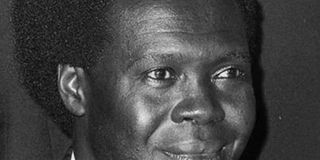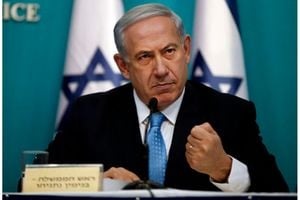History repeating itself in NRM feud – Kintu-Musoke

Milton Obote
What you need to know:
Former prime minister says the history of African politics shows that directly elected party chairmen cannot work harmoniously with elected party secretary generals
Kampala. The ongoing feud between President Museveni and National Resistance Movement secretary general Amama Mbabazi was bound to happen because directly elected party leaders have historically not worked well with directly elected party secretary generals, argues former prime minister Kintu Musoke.
Mr Musoke, who was a member of the Uganda Peoples’ Congress (UPC) party led by former president Milton Obote at independence in 1962, says he experienced “firsthand the machinations” between Obote and his secretary generals and came to the conclusion that having a directly elected secretary general is a recipe for disaster.
“When both the party chairman and secretary general are directly elected, the party leader will not have enough control over the party and this will eventually lead to intrigue and conspiracy; at least that is what the experience in Africa, and especially in Uganda, shows,” says Mr Musoke. Mr Musoke says what is happening between Mr Museveni and Mr Mbabazi is “an indictment on the whole political structural organisation (of the ruling party).”
He says the party’s constitution should be amended to enable the party chairman appoint the secretary general and other party officials.
“This is the lesson UPC learnt from the friction between Obote and his secretary generals in the 1960s,” says Mr Musoke. Currently, UPC is the only major political party in Uganda where the party president appoints the secretary general and other party leaders.
“This structure did not work with Obote and (secretary general John) Kakonge; it did not work with Obote and Grace Ibingira; it did not work with (former DP leader Benedicto) Kiwanuka and (Basil) Bataringaya; and it did not work between (former Kenya President Jomo) Kenyatta and (former Kanu secretary general Tom) Mboya,” Mr Musoke says. “It was not going to work between Museveni and Mbabazi.” This view, however, is regarded as “anti-democratic” by Mr Mwambutsya Ndebesa, a political historian at Makerere University. “This is what exactly happened when Obote took a more autocratic stance in UPC after arresting Ibingira.”
Shortly after independence, misunderstandings developed between Obote and secretary general John Kakonge, leading to Kakonge being replaced by Grace Ibingira in 1964.
To ensure that Ibingira won the SG vote against Kakonge, Mr Musoke says, Obote ensured that Busoga, where he could bank on his vice president Wilberforce Nadiope, had many delegates at the Gulu delegates conference of 1964, with Busoga region allowed to send delegates from parish level whereas the other regions sent delegates from sub-county level.
Mr Musoke, who backed Kakonge against Obote, adds that a rift grew between Obote and Ibingira almost immediately after Kakonge was replaced.
Ibingira, according to Mr Musoke, sided with Buganda Kingdom to undermine Obote, prompting Obote to respond with military force, leading to the 1966 attack on the Buganda King’s palace and Edward Mutesa II’s flight to exile.
Ibingira would spend five years in jail.
So in many ways, the events of the last few months that culminated in the CEC meeting last weekend was history repeating itself, according to Mr Kintu-Musoke.
How it will end, or wherever it will lead is the question on many Ugandan’s mind at this point as the country waits for the planned December 15, NRM Delegates Conference.


